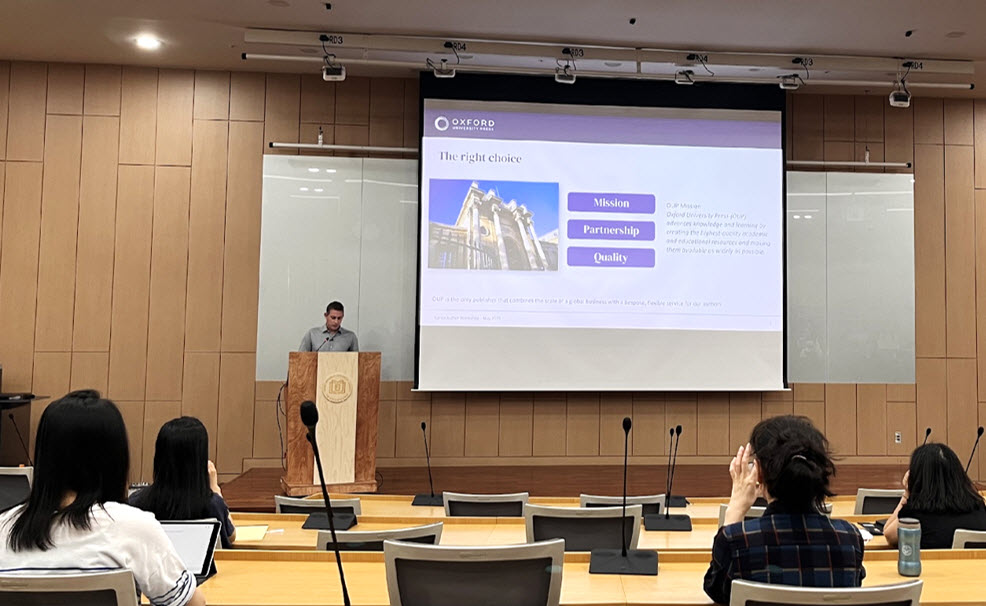Research is one of a university’s top priorities, and an essential task for many of its members. For many researchers, however, especially students who are just embarking on their academic journey, the process of writing and publishing a paper can be stressful. To help strengthen the research capabilities of its members, as well as support their contribution of papers to overseas journals, Seoul National University Library (SNUL) holds an annual lecture series consisting of four to six sessions. Open to all members of the SNU community, the sessions cover a variety of topics regarding the process, such as advice on how to avoid exploitative journals and how to revise your articles.
This year, SNUL has hosted four lectures so far. The first lecture was a guide on how to write a successful research paper, from tips for selecting an appropriate topic to suggestions on how to present data in a compelling way. The second lecture was held in two sessions, with the first providing useful information for Korean researchers writing an academic paper in English, and the second focusing on sharing effective writing techniques and procedures. The third lecture was a timely discussion on the problem of authorship in an age of AI tools such as ChatGPT. All of these lectures are currently available to watch on the SNUL official website.

Matthew Lane of Oxford University Press
The fourth lecture was a special session held on May 24, led by senior editor Matthew Lane of Oxford University Press (OUP), the world’s largest university press. Lane provided insights and strategies on every step of the process from writing the thesis to its submission, publication, and promotion. Roughly sixty people filled the Yangdoosuk Hall of the Kwanjeong Building to participate in the lecture.
One of the interesting points Lane brought up was the use of AI. A tremendous amount of interest has been raised in academia since the release of the latest version of ChatGPT last year, but there is still no consensus as to the use of AI in research. Lane explained that AI bots cannot create new ideas, only utilize existing data, and cannot be assigned legal authorship. Legitimate uses of AI in research do exist, however, and such uses must be thoroughly disclosed. As for selecting the right journal, Lane proposed making a checklist to evaluate journals based on criteria such as the types of articles considered, speed of publication, and novelty of content.
Another crucial part of the submission process is responding to reviewers’ comments and inevitably, dealing with rejection from journals. On responding to reviewers’ comments, Lane suggested a calm, polite, and precise attitude in making revisions. Rejection is also a challenge that most researchers go through, and Lane proposed valuable and practical ideas to deal with the rejection and also use it as a stepping stone to improve the quality of further submissions.
Lastly, Lane painted a vivid picture of what to expect after one’s article is accepted, offering insights into the procedure of online publication and how to read article metrics. He also made suggestions on how to promote one’s work, some for those on a short time limit, including things you can do in less than an hour, and other suggestions for publication over a longer time span.
Seoul National University Library hosts numerous helpful workshops and lectures to cater to the various needs and interests of the SNU community, offering many useful tools for making use of the vast amount of resources the library holds. If you’re looking to write a quality paper, SNUL can offer a helping hand. (https://lib.snu.ac.kr/)
Written by Minjoo Lee, SNU English Editor, mjl1018@snu.ac.kr
Reviewed by Professor Travis Smith, Department of Asian Languages and Civilizations, tlsmith@snu.ac.kr

